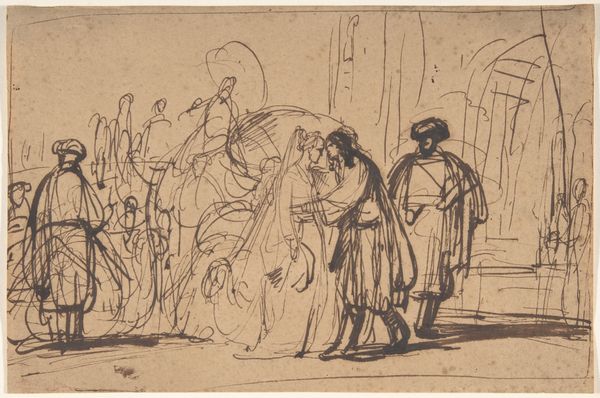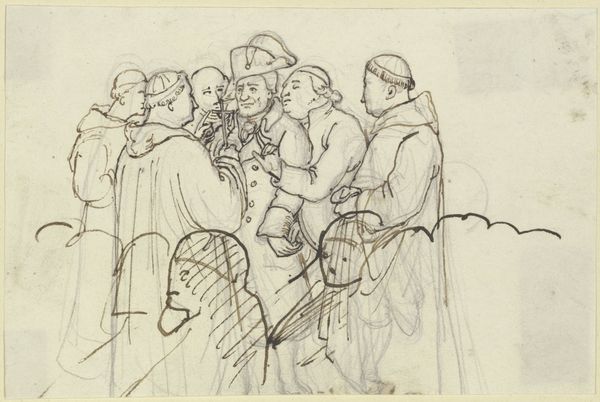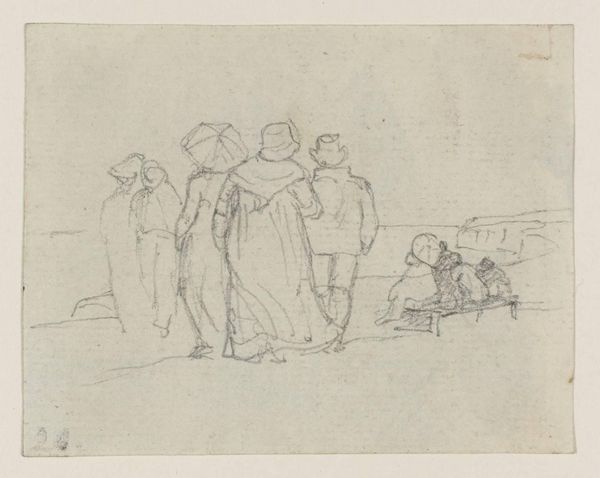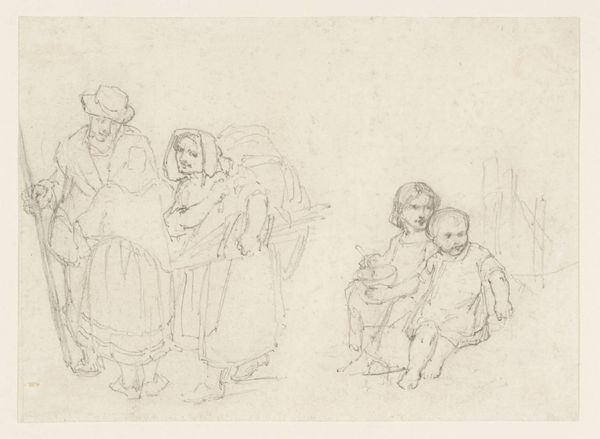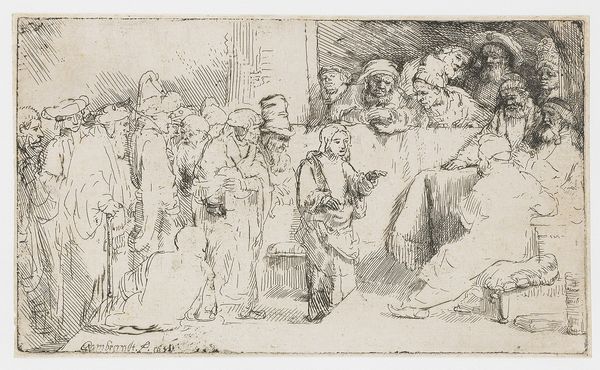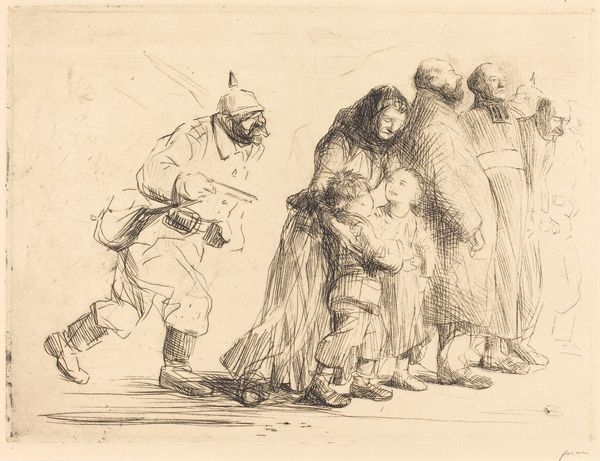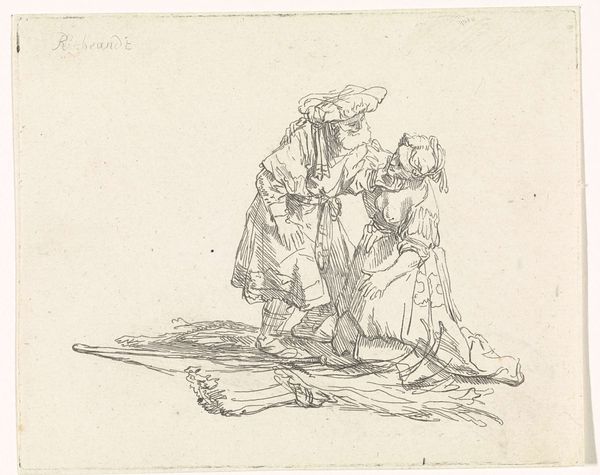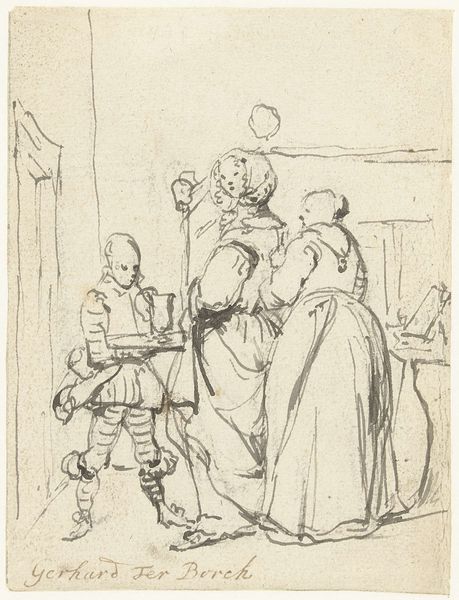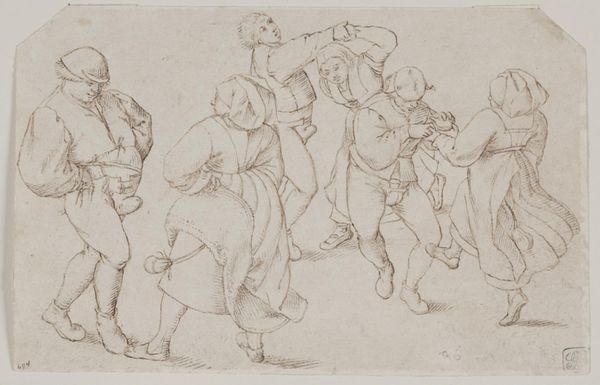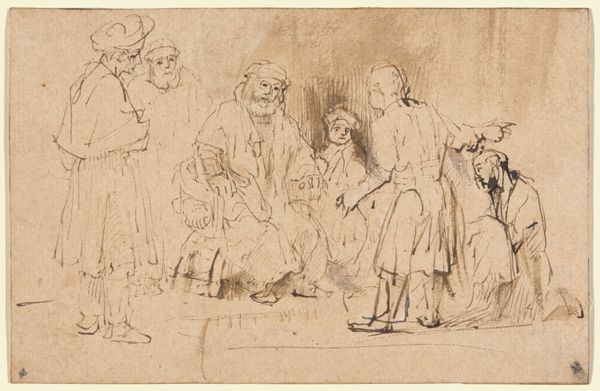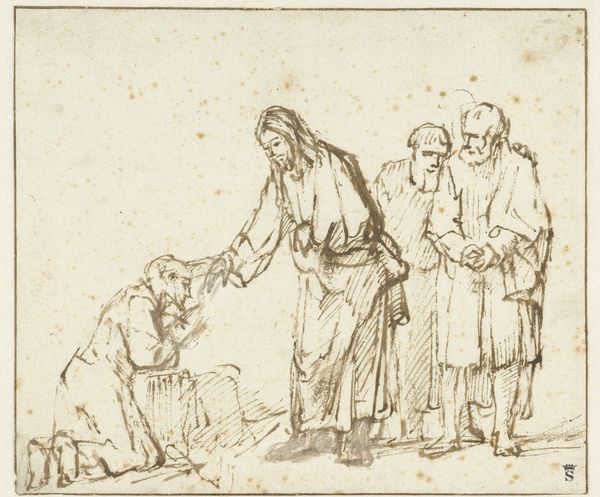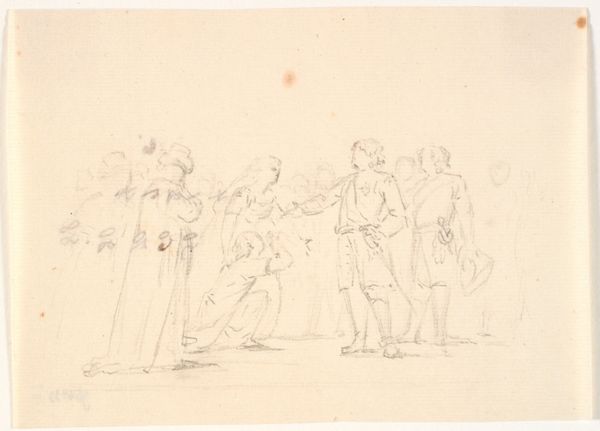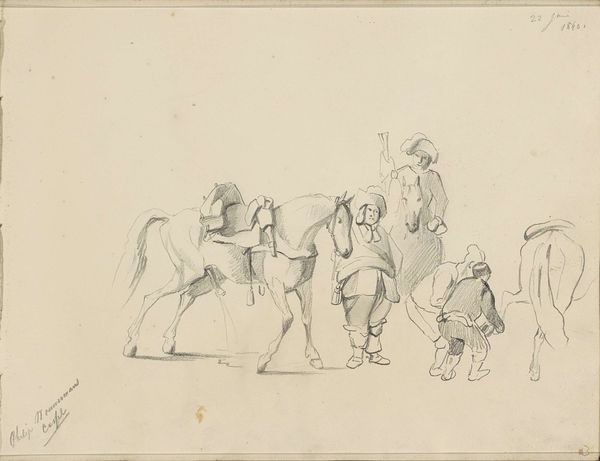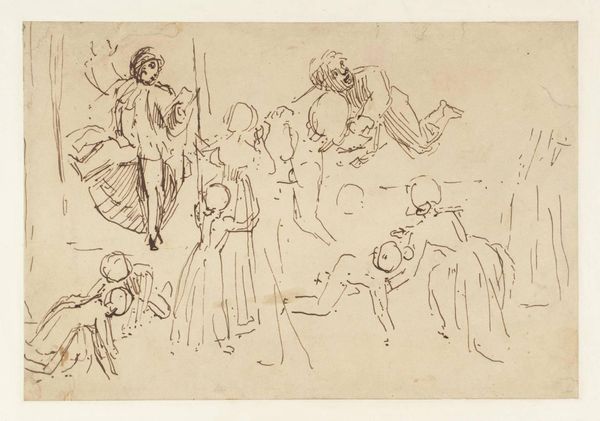
Studie voor het vertrek van Willem V naar Engeland, 18 januari 1795 1795
0:00
0:00
dirklangendijk
Rijksmuseum
drawing, paper, pencil
#
drawing
#
neoclacissism
#
figuration
#
paper
#
group-portraits
#
pencil
#
line
#
history-painting
Dimensions: height 223 mm, width 313 mm
Copyright: Rijks Museum: Open Domain
Editor: This is Dirk Langendijk's "Study for the Departure of Willem V to England, 18 January 1795," a pencil drawing on paper housed here at the Rijksmuseum. I’m immediately struck by the sketchiness; it feels unfinished, raw, and captures a moment of vulnerability. What can you tell me about this scene? Curator: It’s a pivotal moment of forced exile for Willem V and his family, amidst revolutionary upheaval. Langendijk’s choice of pencil reflects this impermanence, this sense of things falling apart. Think about the political climate: the ideals of the French Revolution spreading, challenging established power structures, particularly aristocratic power. How does that context inform your reading of Willem V's stance and his family in this study? Editor: I see it now; their body language seems hesitant and unsure, almost as if they are being pushed into leaving. What did Langendijk intend to capture here, and for what audience? Curator: Langendijk, within his Neoclassical framework, perhaps aimed to portray a moment laden with both personal loss and broader societal transformation, or as resistance against republican ideals. It’s vital to question whose story is centered and whose is marginalized. Was Langendijk lamenting the fall of the House of Orange or subtly critiquing its governance? The very act of depicting this departure raises questions about power, privilege, and the dispossessed. Who benefited from this power shift? Who suffered? Editor: So it’s not just about Willem V's personal journey, but a mirror reflecting the deep social fractures of that era. I had viewed it with more sadness; now, it invites examination of that society and that revolution. Curator: Exactly. Understanding the layers of political, social, and economic currents enables a more rigorous interrogation, moving beyond surface-level aesthetics. The study serves as a portal into this historical disruption and prompts us to consider those larger issues of power and privilege in today’s context as well. Editor: I appreciate you underscoring how historical context shapes the personal. That really reframes how I’ll look at similar works moving forward!
Comments
No comments
Be the first to comment and join the conversation on the ultimate creative platform.
